How many hours per night do you sleep, on average? Do you feel like you can function just fine on less than 8 hours? Did you know we are the only species on earth that purposely truncates our sleep cycles? By doing so, we are majorly short-changing ourselves and society. Today I’ll share reasons to shoot for the full 8 hours.
Adenosine
I talked about adenosine and Process-S, the urge to sleep, on Day 1 – Sleep Week. This is a natural accumulation that causes us to feel sleepy, and it takes a full 8 hours for the brain to clear it each night. Getting up before that process is done leads to groggy mornings, grabbing caffeine (an adenosine mask), and typically a then-repeated cycle.
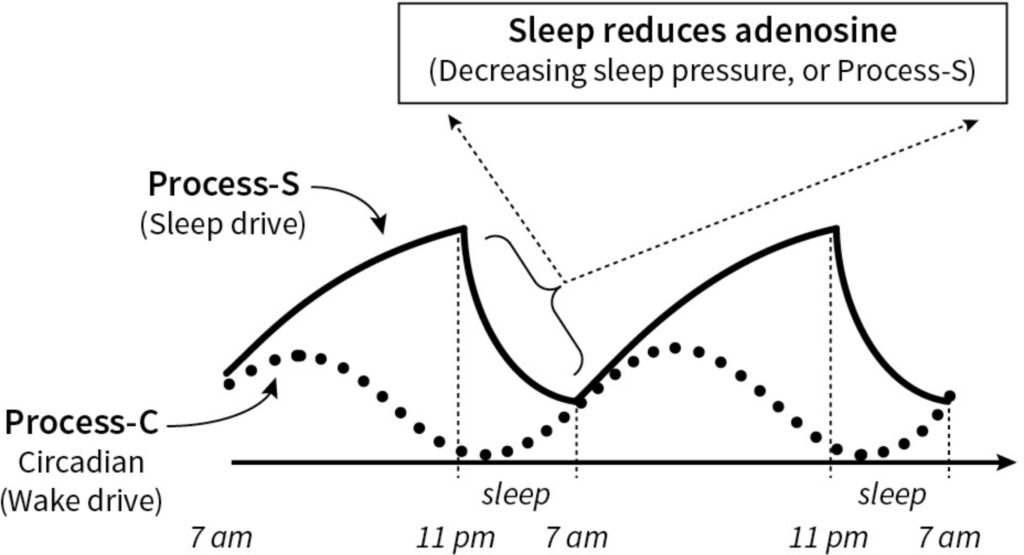
NREM or REM
Depending on which end of sleep you miss, evening sleep or early morning sleep, anything less than 8 hours shortchanges either NREM or REM sleep. This pattern remains true no matter when you go to sleep and both are important.
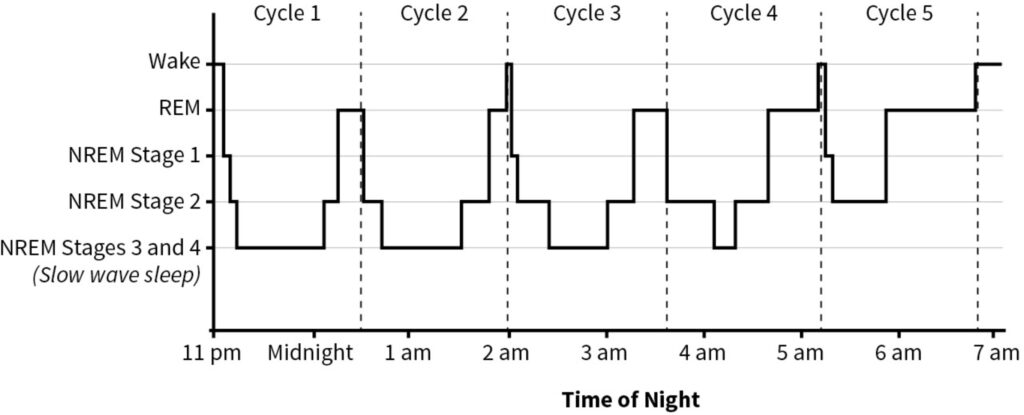
These cycles are natural, immutable, and vital for peak health. Messing with them is a recipe for everything bad and nothing good.
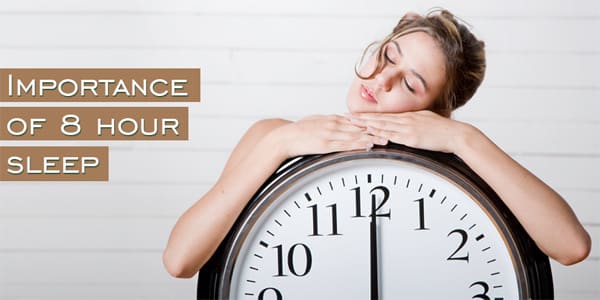
Physical Performance
Forget performance enhancing drugs (PEDs), the most powerful one is available to all of us, for free – sleep!
“Obtain anything less than eight hours of sleep a night, and especially less than six hours a night, and the following happens: time to physical exhaustion drops by 10 to 30 percent, and aerobic output is significantly reduced. Similar impairments are observed in limb extension force and vertical jump height, together with decreases in peak and sustained muscle strength. Add to this marked impairments in cardiovascular, metabolic, and respiratory capabilities that hamper an underslept body, including faster rates of lactic acid buildup, reductions in blood oxygen saturation, and converse increases in blood carbon dioxide, due in part to a reduction in the amount of air that the lungs can expire. Even the ability of the body to cool itself during physical exertion through sweating—a critical part of peak performance—is impaired by sleep loss.”*
Have a look at rates of sports injury in regards to sleep.
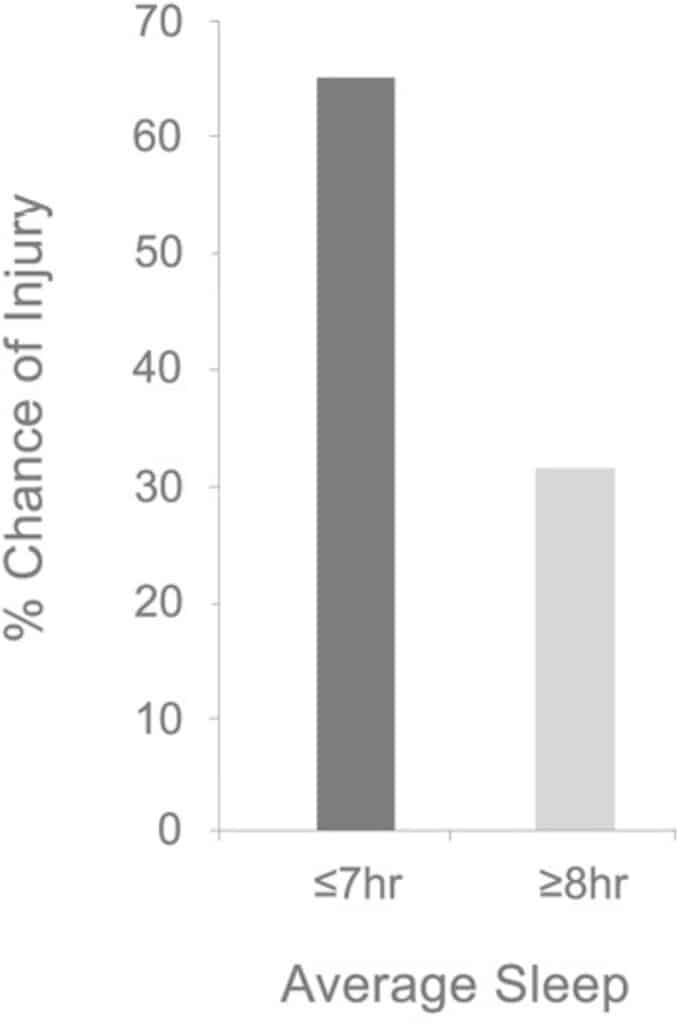
Apply these same principles to our everyday lives and the same rings true.
Cognitive Impairment
We don’t know how sleep-deprived we are when we are sleep-deprived. We think we are fine, we can function, perform just fine, but study after study prove otherwise. Here’s a sobering example:
“In a disturbing later study, researchers in Australia took two groups of healthy adults, one of whom they got drunk to the legal driving limit (.08 percent blood alcohol), the other of whom they sleep-deprived for a single night. Both groups performed the concentration test to assess attention performance, specifically the number of lapses. After being awake for nineteen hours, people who were sleep-deprived were as cognitively impaired as those who were legally drunk. Said another way, if you wake up at seven a.m. and remain awake throughout the day, then go out socializing with friends until late that evening, yet drink no alcohol whatsoever, by the time you are driving home at two a.m. you are as cognitively impaired in your ability to attend to the road and what is around you as a legally drunk driver. In fact, participants in the above study started their nosedive in performance after just fifteen hours of being awake (ten p.m. in the above scenario).”

What about 7 Hours?
Do you think 7 hours is “good enough” for you? Research says it isn’t. I added bold for emphasis.
“Humans need more than seven hours of sleep each night to maintain cognitive performance. After ten days of just seven hours of sleep, the brain is as dysfunctional as it would be after going without sleep for twenty-four hours. Three full nights of recovery sleep (i.e., more nights than a weekend) are insufficient to restore performance back to normal levels after a week of short sleeping. Finally, the human mind cannot accurately sense how sleep-deprived it is when sleep-deprived.”
Health Risks
Here are some interesting stats to keep in mind:
- Adults forty-five years or older who sleep fewer than six hours a night are 200 percent more likely to have a heart attack or stroke during their lifetime, as compared with those sleeping seven to eight hours a night.
- Sleeping 5-6 hours per night or less makes an individual 200-300 percent more likely to suffer calcification of your coronary arteries over the next five years, relative to those individuals sleeping seven to eight hours.
- Less than 8 hours increases likelihood of obesity, metabolic problems, and type 2 diabetes.
- Less than 8 hours decreases fertility in both males and females and increases miscarriage risk in pregnant women.
- Less than 8 hours decreases life span.
- Less than 8 hours dramatically weakens the immune system.
- These are only a few examples among too many to list.
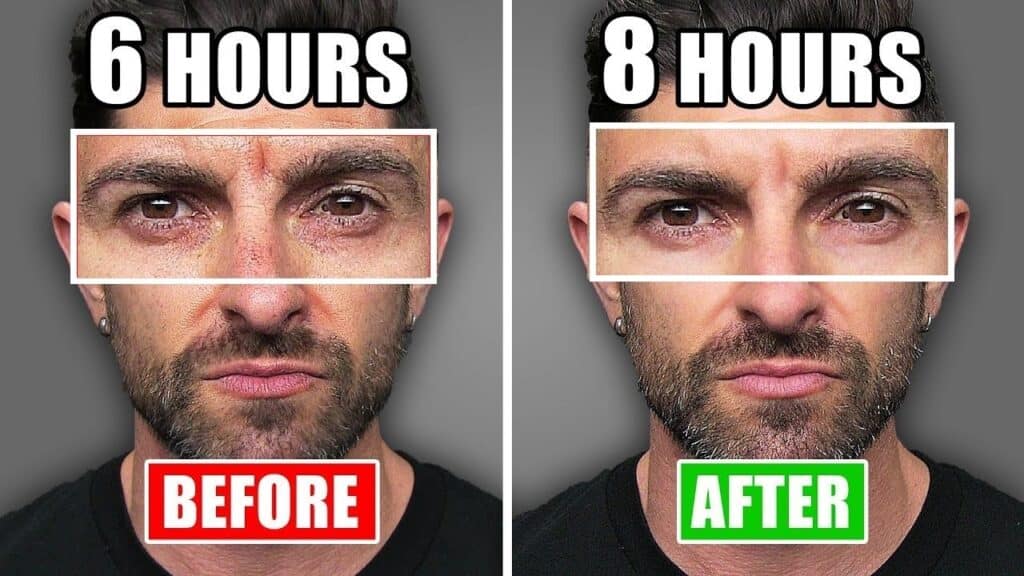
8 Hours, Every Night
I remember as a kid staying up late during the week to study, watch tv, whatever, thinking I could just make it up on the weekend. WRONG!
The brain can never recover all the sleep it has been deprived of. We cannot accumulate a debt without penalty, nor can we repay that sleep debt in full at a later time.
– Matthew Walker, Why We Sleep
As we can see from the science and the way our rhythms align, Process-C and Process-S, the best way is to sleep the same every night. Mother Nature didn’t plan for the human-created calendar that includes weekends. Our bodies are designed to function the same every day.
Sleep Loss and Work
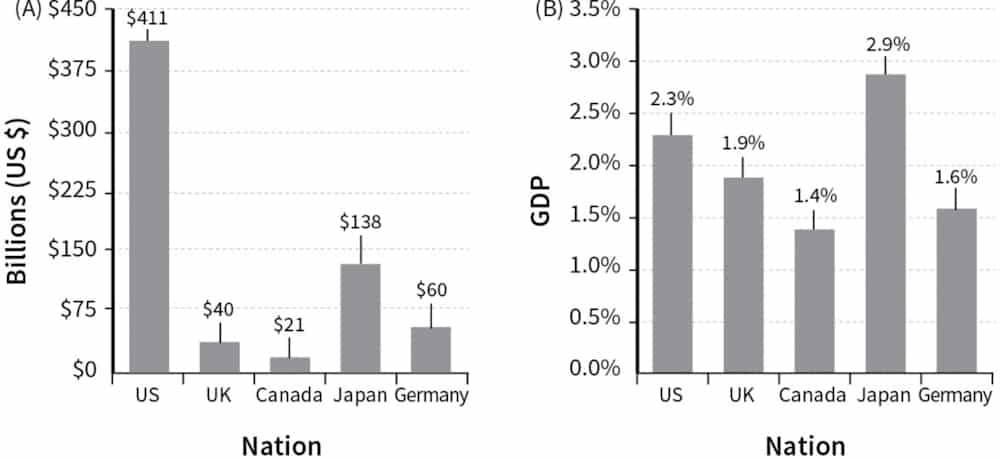
“Insufficient sleep robs most nations of more than 2 percent of their GDP—amounting to the entire cost of each country’s military. It’s almost as much as each country invests in education. Just think, if we eliminated the national sleep debt, we could almost double the GDP percentage that is devoted to the education of our children.”
Need I say more?
8 Hours
Are you shifting towards committing to a full 8 hours each and every night? Tomorrow we’ll look at how.
* All excerpts from Matthew Walker, Why We Sleep
If you have landed on this page from an external link, please go HERE to read from the beginning. Otherwise, click on the next title below to continue.


Leave a Reply
You must be logged in to post a comment.